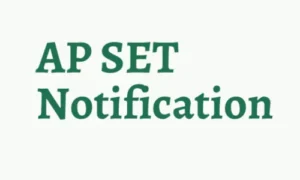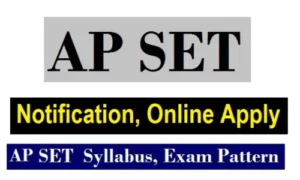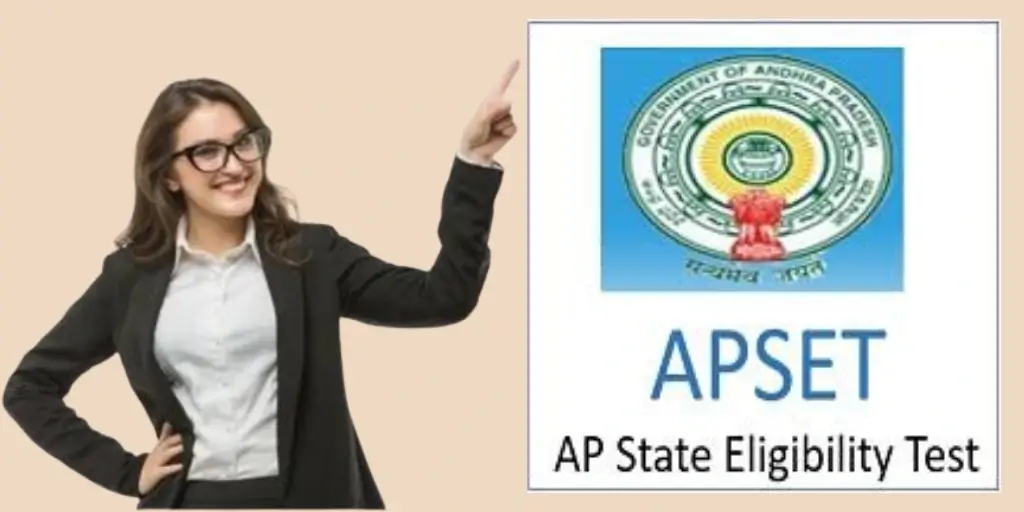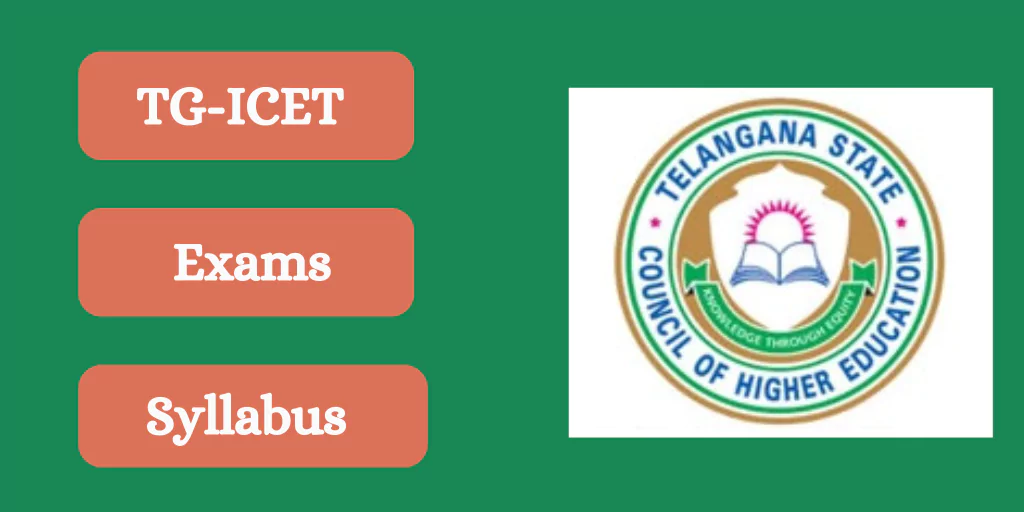Recently updated on January 31st, 2025 at 10:34 am
The Andhra Pradesh State Eligibility Test (AP SET) is conducted to determine the eligibility of candidates for the role of Assistant Professor or Lecturer in universities and colleges within Andhra Pradesh. The syllabus for AP SET generally follows the guidelines set by the University Grants Commission (UGC) for the National Eligibility Test (NET), with specific adjustments for the Andhra Pradesh context.
General Structure of AP SET Syllabus

1. Paper I: General Studies and Teaching Aptitude
- Teaching Aptitude:
Teaching methods and techniques
Evaluation systems
Educational psychology and learning theories
Classroom management and instructional planning
- Research and Reasoning:
Research methodology and techniques
Data interpretation and analysis
- Communication:
Comprehension and communication skills
Communication models and barriers
- Logical Reasoning and Analytical Ability:
Problem-solving and reasoning
Data interpretation
- Current Affairs:
General awareness of national and international events
Significant events in politics, economics, and culture
2. Paper II & III: Subject-Specific Syllabus
The subjects are divided into two papers:
Paper II: Focuses on the core subject of the candidate’s choice.
Paper III: Includes advanced and specialized topics within the chosen subject.
Each subject has its detailed syllabus which can be divided into various units or sections. Below are examples of what a subject-specific syllabus might include:
For Humanities (e.g., History, Political Science, Sociology):
- Historical and Political Theory: Key concepts, major theorists, and historical events.
- Research Methodology: Techniques, approaches, and methodologies used in the subject.
- Current Trends: Recent developments and contemporary issues.
For Science Subjects (e.g., Physics, Chemistry, Biology):
- Core Concepts: Fundamental theories and principles of the subject.
- Advanced Topics: Specialized areas within the subject.
- Practical Knowledge: Laboratory techniques and experimental procedures.
For Commerce (e.g., Accounting, Business Studies):
- Accounting Principles: Basic and advanced accounting concepts.
- Business Management: Organizational behaviour, management principles.
- Economic Theories: Micro and macroeconomics fundamentals.
Detailed Subject-Specific Syllabus Examples

1. Physics:
- Classical Mechanics
- Quantum Mechanics
- Thermodynamics
- Electromagnetism
- Solid State Physics
2. Chemistry:
- Physical Chemistry (Thermodynamics, Kinetics, etc.)
- Organic Chemistry (Reaction Mechanisms, etc.)
- Inorganic Chemistry (Coordination Compounds, etc.)
- Analytical Chemistry
3. Mathematics:
- Algebra
- Calculus
- Differential Equations
- Real Analysis
- Statistics
4. English:
- Literature: Major literary movements, authors, and works
- Language Skills: Grammar, vocabulary, and comprehension
- Literary Criticism: Theories and approaches
How to Prepare
1. Refer to the Official Syllabus: Obtain the detailed syllabus from the official AP SET website or the examination conducting authority.
2. Study Material: Use standard textbooks, reference books, and previous years’ question papers.
3. Practice Tests: Regularly practice with mock tests and sample papers to familiarize yourself with the exam format.
The AP SET syllabus is subject to periodic updates, so candidates should ensure they are studying the most current material by consulting official resources and announcements.
Conclusion
In conclusion, a clear understanding of the AP SET syllabus is essential for candidates aiming to qualify for the role of Assistant Professor or Lecturer in Andhra Pradesh. By thoroughly preparing for both Paper I, which covers General Studies and Teaching Aptitude, and the subject-specific Papers II and III, candidates can build a solid foundation for their examination. Familiarity with detailed topics, effective study strategies, and regular practice can significantly enhance one’s chances of success







slot365 link alternatif
August 29, 2024rtp slot365 Một trong những ưu điểm lớn nhất của nền tảng là giao dịch tiện lợi. Nhà cái luôn ưu tiên tạo điều kiện tốt nhất để có thể thực hiện các giao dịch một cách dễ dàng và nhanh chóng, đảm bảo sự thoải mái trải nghiệm mượt mà khi tham gia cá cược trực tuyến.
888slot trang chủ
August 29, 2024slot365 là gì PP, WM, EVO, DG, AG, Microgaming, SA, VIVA Gaming,… các NPH Live Casino tiềm năng mang đến cho người chơi hàng loạt cơ hội nhận thưởng gấp 40 lần tiền cược ban đầu. Bạn có thể thử sức với các trò chơi mới lạ như: Fast Baccarat, Speed Roulette, Fan Tan,…
gratis binance-konto
August 29, 2024I don’t think the title of your article matches the content lol. Just kidding, mainly because I had some doubts after reading the article.
最佳Binance推荐代码
August 29, 2024Your point of view caught my eye and was very interesting. Thanks. I have a question for you. https://accounts.binance.info/si-LK/register?ref=LBF8F65G
zoritoler imol
August 29, 2024I couldn’t resist commenting